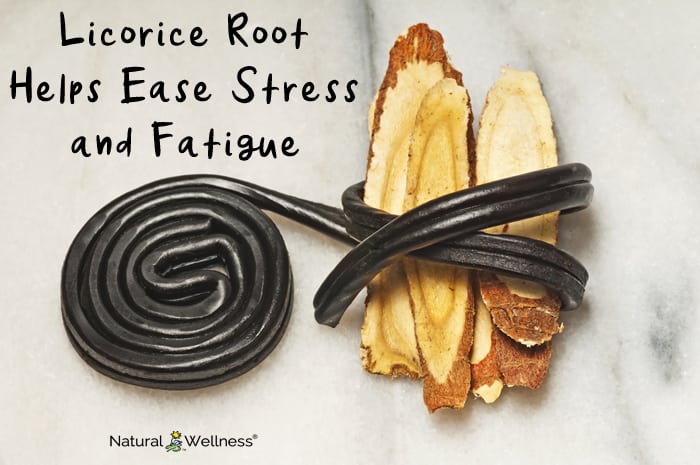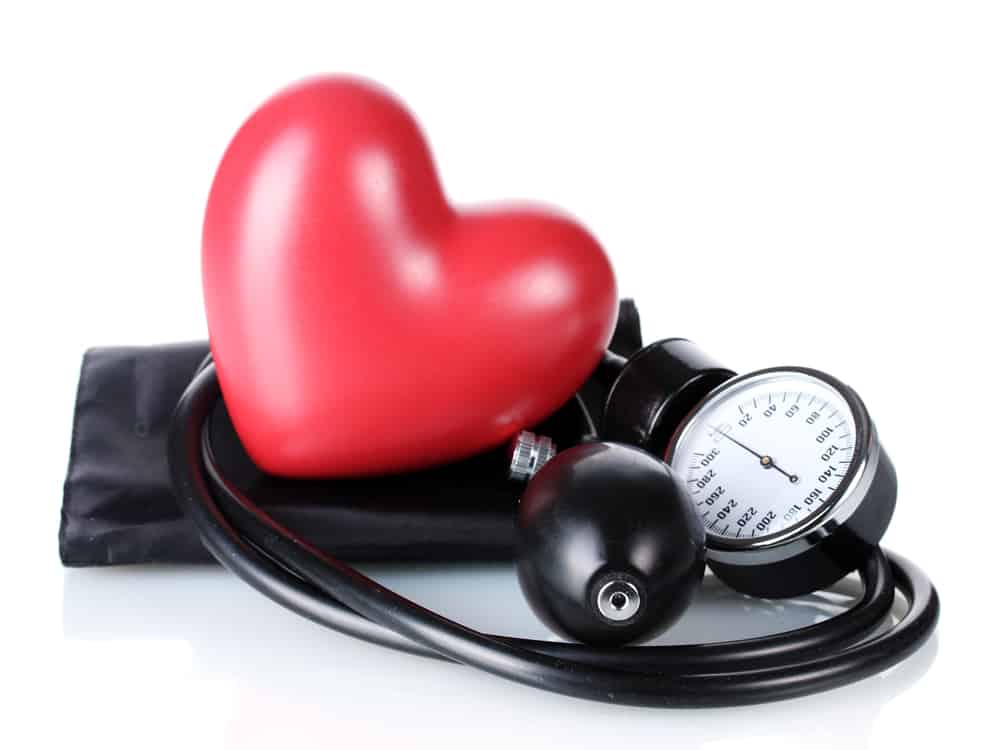

Licorice root has a long history of medicinal use in both Eastern and Western systems of herbal medicine.
Helping the human body in several different ways, one of licorice root’s most valuable characteristics is its ability to support the adrenal glands. Because adrenal burnout (also known as adrenal exhaustion) is fueled by chronic stress – which leads to fatigue – supplementing with licorice root can be an influential tool to help people with this common condition.
Compared to the heart, liver or kidneys, people tend to know very little about the adrenals. If we were more aware of how important our adrenal glands are in dealing with stress and causing fatigue, we might take better care of these tiny powerhouses.
In addition to instituting lifestyle changes to protect the adrenal glands from exhaustion, taking licorice root may help regulate the production of hormones in the adrenals. Regulation of adrenal hormone production is capable of preventing burnout and the profound fatigue that can follow.
About the Adrenal Glands and Adrenal Exhaustion
Sometimes called the stress glands, the adrenal glands are the body’s response system for emotional, physical or chemical stress.
The adrenals are two thumb-sized glands that sit on top of the kidneys and produce hormones (like adrenaline and cortisol) to help you respond to stress.
- Adrenaline – Also known as the fight-or-flight hormone, adrenaline increases heart rate and blood pressure to prepare the body for battle. While most of us are not engaged in daily gun or sword battles, adrenaline is released when someone is under any type of substantial stressor. Adrenaline surges are intended to get us through tough times, but repeated adrenaline release depletes the adrenals of this hormone.
- Cortisol – Frequently referred to as the stress hormone, cortisol is secreted in response to stress and is responsible for several stress-related changes in the body. While cortisol is a natural part of our response to stress, the body’s relaxation response must be activated so the body can return to normal following a stressful event. Unfortunately, recurring stress may not permit a return to normal. This results in a state of chronic stress that is accompanied by high and prolonged levels of cortisol in the bloodstream.
The most recognized symptom of adrenal exhaustion is fatigue. Besides having a hard time getting up in the morning, adrenal exhaustion frequently leaves sufferers without any energy at all.
Other symptoms of poor adrenal function include:

- high blood pressure
- belly fat (that won’t go away with diet and exercise)
- insomnia
- reduced libido
- inability to cope with stress
- anxiety
- recurrent infections
- craving sweet foods
- joint pain
- hormonal issues
Supporting the Adrenals
It would be too easy to proclaim reducing stress as the answer to adrenal burnout. If it were that simple, we would all be stress-free!
Although we can’t always reduce stress, it is important to recognize your personal stress level and triggers – then work towards reducing stress’s impact on you.
Since repeated cortisol release is the number one cause of adrenal exhaustion, initiation of the relaxation response after a stressful event can go a long way in supporting your adrenal glands.
Some people choose to use drugs or alcohol for relaxation. Unfortunately, these substances put additional stress on the adrenal glands. Experts agree that “medicating” with certain drugs or alcohol may initially feel relaxing, but they actually worsen adrenal exhaustion.
11 Stress Management Techniques

Various stress management techniques are geared towards initiating relaxation and have been found to help the adrenals secrete healthy levels of cortisol.
Some examples include:
- Exercise
- Sex
- Guided imagery
- Journaling
- Yoga
- Receiving massage
- Listening to music
- Meditation
- Fishing
- Deep breathing
- Acupressure points
Herbal Supplements to Support Your Adrenal Glands
In addition to these stress management techniques, there are some herbal supplements known to support the adrenal glands. One of the most respected herbs for adrenal support is licorice root, known by the latin Glycyrrhiza glabra or Glycyrrhiza uralensis. Please note that licorice root has little in common with conventional licorice candy.
A staple of traditional medicine for adrenal exhaustion, licorice root influences the balance of cortisol throughout the body. Available in many oral dosage forms, licorice root’s primary active compound is glycyrrhizin.
Natural health and wellness expert Christiane Northrup, MD suggests starting with a small amount of licorice and gradually working up to the desired dosage. When it comes to the adrenal benefits of licorice, more is not always better. A standardized extract dosage of licorice root is approximately 25-75 mg per day. Good quality liquid extracts are also available, and should contain around 30mg/ml glycyrrhizin.
As published in the African Journal of Traditional, Complementary and Alternative Medicines, Chinese researchers investigated the effects of a licorice root extract in an animal study. Their research found that a component of licorice root significantly inhibited fatigue in the subjects.
3 Safety Concerns
However, licorice root does have some potential safety concerns:
- Excessive intake of licorice root can exacerbate hypertension and other heart problems by disrupting the salt and water balance.
- Make sure to monitor blood pressure, as licorice may increase blood pressure in susceptible individuals.
- Glycyrrhizin-containing licorice may interact with a number of drugs, including diuretics, insulin, laxatives, and blood-thinning medications.
Conclusion
Adding licorice root to stress management techniques can support the adrenal glands and reverse adrenal exhaustion; however, it must be done under the guidance of a knowledgeable healthcare practitioner. This is especially important if you are on any medications, have high blood pressure, or other chronic health issues.
High stress levels contribute to fatigue. Being aware of the role the adrenals play in stress and fatigue is a giant step towards regaining vitality.
Consciously seeking out ways to achieve relaxation and support the adrenal glands – like exercising, meditating and taking licorice root – will guide you toward being less stressed and more energetic, a combination that just about every human being strives for.




